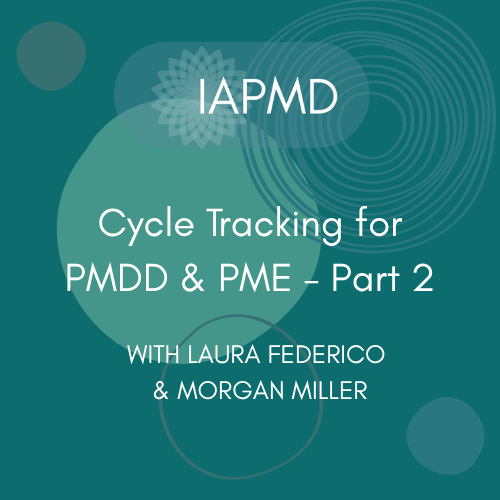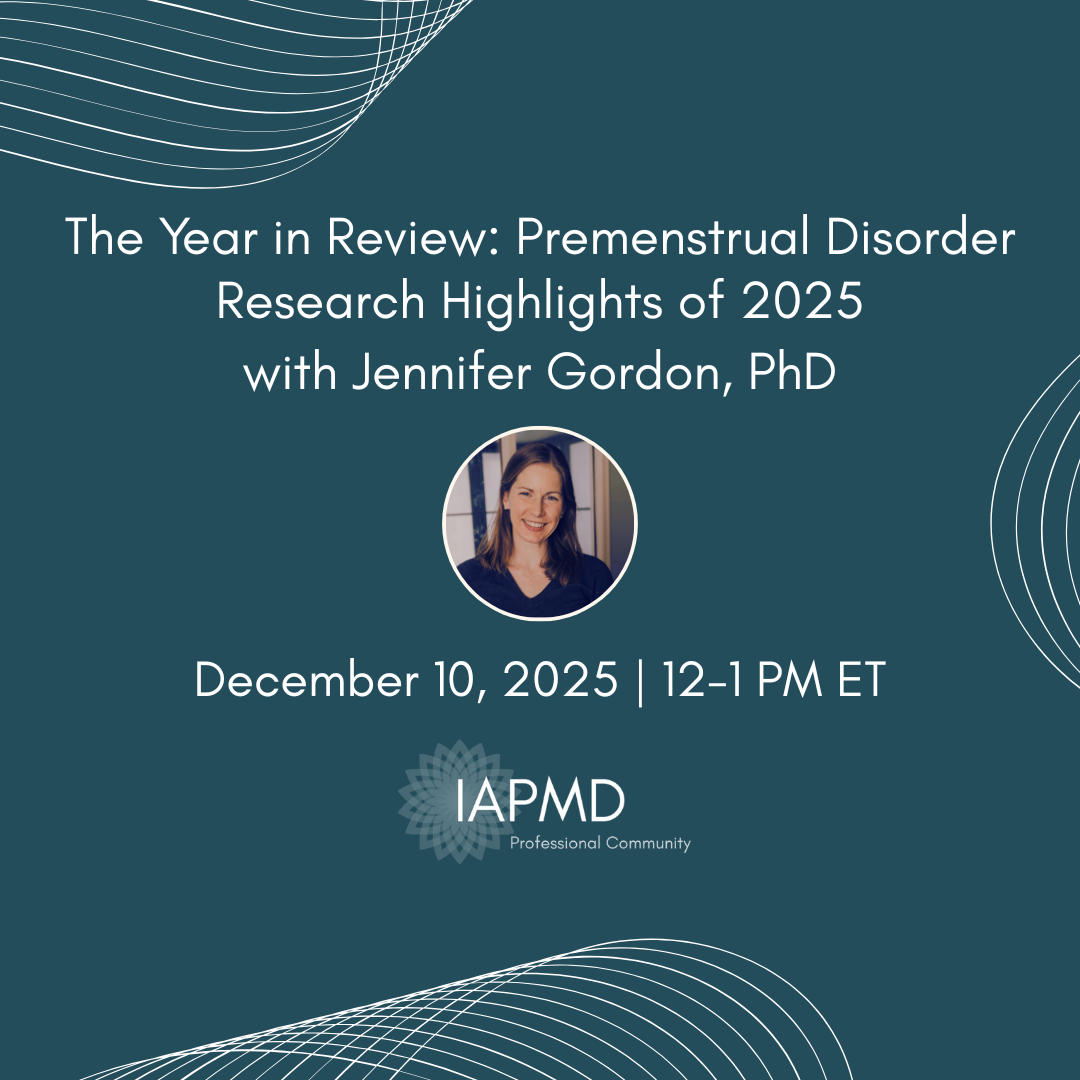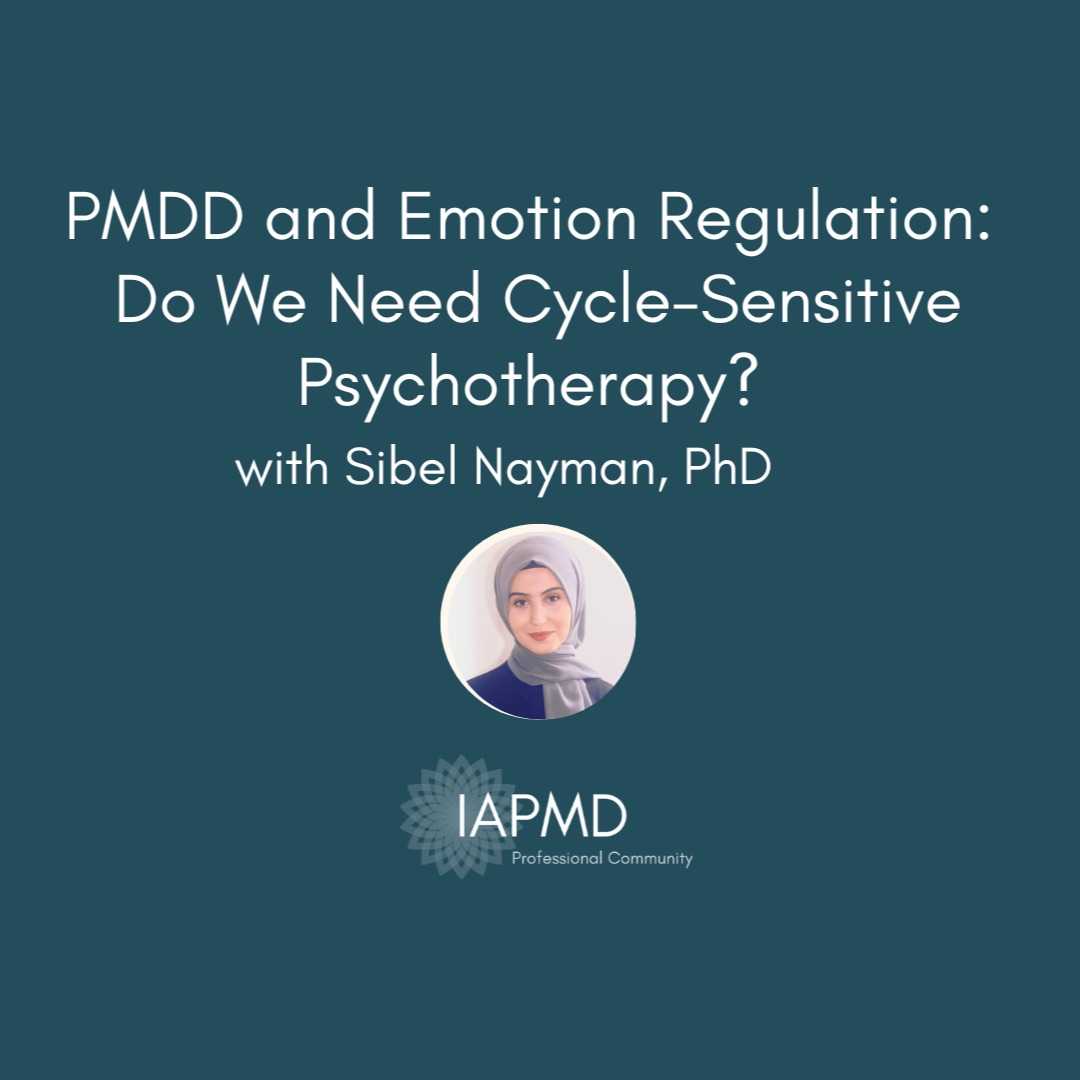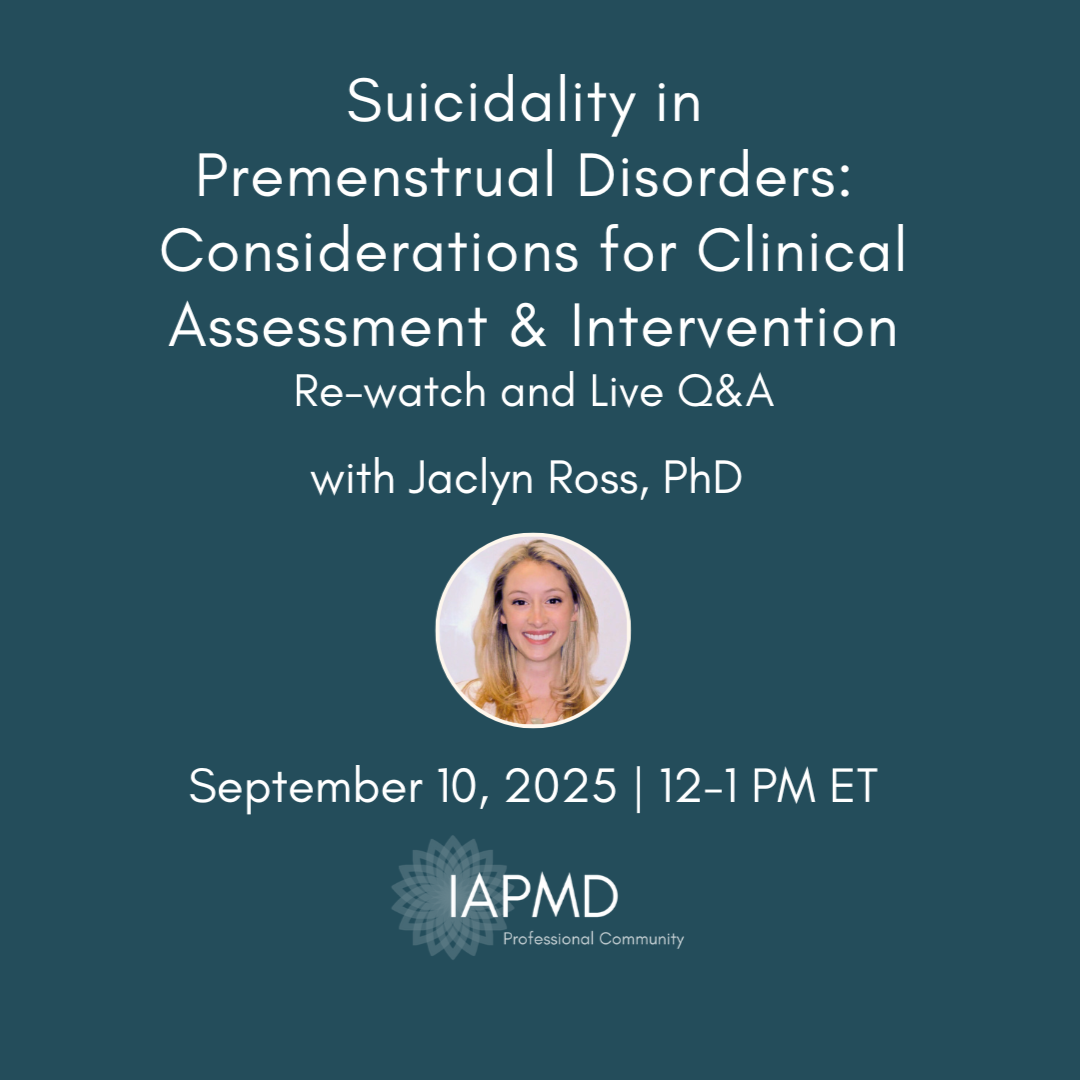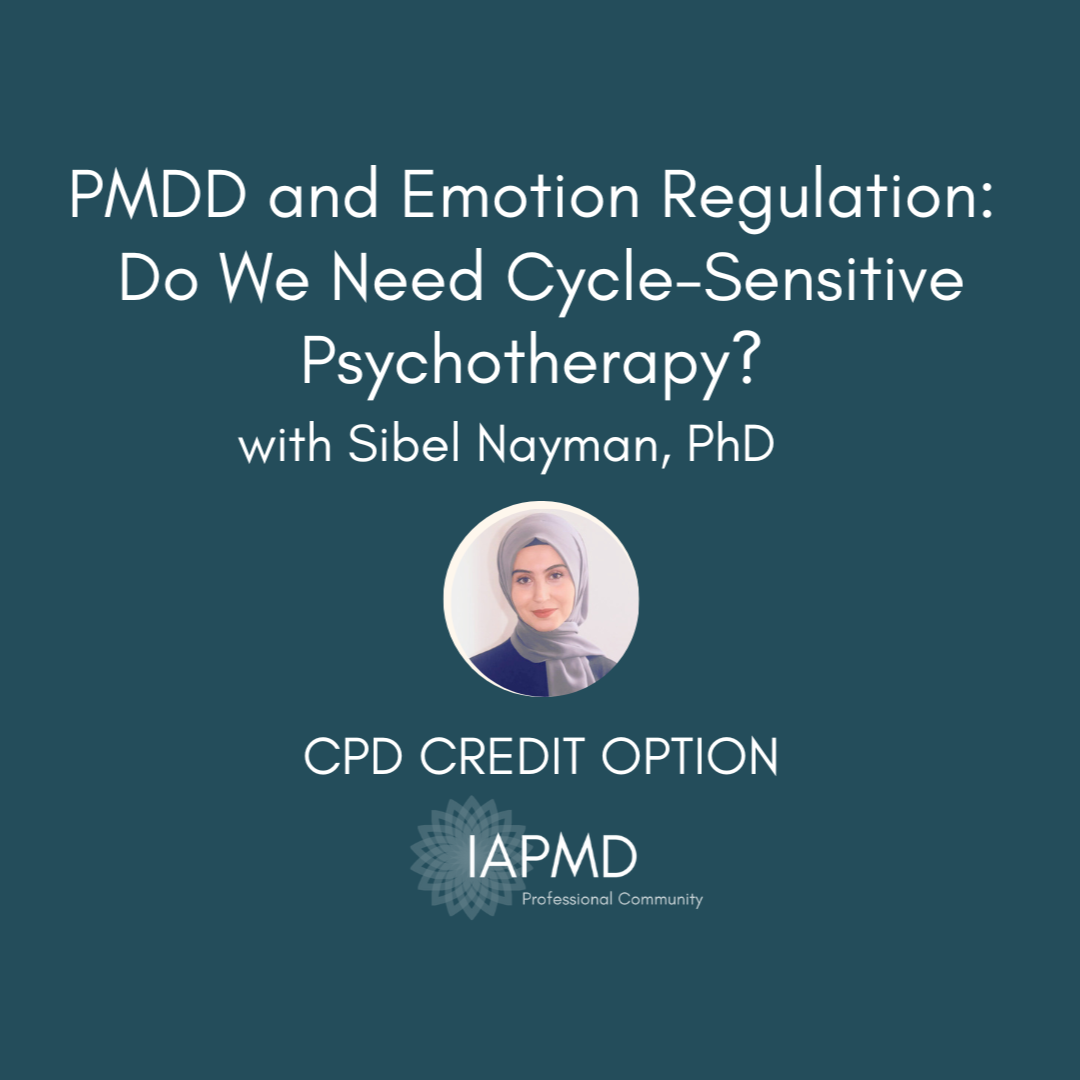 Image 1 of 1
Image 1 of 1


CPD CREDIT OPTION - PMDD and Emotion Regulation: Do We Need Cycle-Sensitive Psychotherapy?
PMDD and Emotion Regulation: Do We Need Cycle-Sensitive Psychotherapy?
Continuing Professional Development Option
(Click here if you do NOT need access to the Continuing Professional Development credit option)
Premenstrual Dysphoric Disorder (PMDD) is characterized by intense emotional symptoms, making the role of emotion regulation essential in understanding and treating the condition. Traditional psychotherapeutic approaches often target stable, trait-like processes, such as habitual rumination or cognitive reappraisal. However, emerging evidence suggests that these approaches may not be sufficient for addressing the dynamic symptom patterns observed in PMDD. Recent findings highlight the importance of timing - emotion regulation support could be particularly effective during specific phases of the menstrual cycle, such as the symptomatic luteal phase.
In this recording, Dr. Sibel Nayman presents findings from ambulatory assessment studies on trait and state emotion regulation in PMDD and explores how cycle-phase-sensitive, personalized interventions could improve therapeutic outcomes.
Viewers gain a deeper understanding of:
· The role of cognitive emotion regulation in PMDD symptom manifestation and variability across and between menstrual cycles.
· Why conventional psychotherapy may fall short for patients with PMDD, particularly when targeting stable traits.
· Practical considerations for adapting psychotherapy to align with the dynamic symptom nature of PMDD - including how these insights may be applied to approaches to other mental disorders with premenstrual symptom exacerbation, such as Attention-Deficit/Hyperactivity Disorder (ADHD).
Dr. Sibel Nayman is a licensed psychological psychotherapist (Cognitive Behavioral Therapy) and a postdoctoral research associate at the Central Institute of Mental Health (CIMH) in Mannheim, Germany. Her research focuses on Premenstrual Dysphoric Disorder (PMDD) and the role of the menstrual cycle in general psychopathology. She is the founder of the Specialized Outpatient Service for PMDD at the CIMH, where she also provides diagnostics and psychotherapy. In addition, she teaches “PMDD in Psychotherapy” at institutes for psychotherapy training.
Disclaimer: This event is for educational purposes and is not intended as medical advice. IAPMD does not endorse, sponsor, or encourage your use of the information or services presented and we accept no liability for the content. Please consult your trusted health professionals and your own values and beliefs when making decisions about your treatment and care.
Recorded: August 20, 2025
PMDD and Emotion Regulation: Do We Need Cycle-Sensitive Psychotherapy?
Continuing Professional Development Option
(Click here if you do NOT need access to the Continuing Professional Development credit option)
Premenstrual Dysphoric Disorder (PMDD) is characterized by intense emotional symptoms, making the role of emotion regulation essential in understanding and treating the condition. Traditional psychotherapeutic approaches often target stable, trait-like processes, such as habitual rumination or cognitive reappraisal. However, emerging evidence suggests that these approaches may not be sufficient for addressing the dynamic symptom patterns observed in PMDD. Recent findings highlight the importance of timing - emotion regulation support could be particularly effective during specific phases of the menstrual cycle, such as the symptomatic luteal phase.
In this recording, Dr. Sibel Nayman presents findings from ambulatory assessment studies on trait and state emotion regulation in PMDD and explores how cycle-phase-sensitive, personalized interventions could improve therapeutic outcomes.
Viewers gain a deeper understanding of:
· The role of cognitive emotion regulation in PMDD symptom manifestation and variability across and between menstrual cycles.
· Why conventional psychotherapy may fall short for patients with PMDD, particularly when targeting stable traits.
· Practical considerations for adapting psychotherapy to align with the dynamic symptom nature of PMDD - including how these insights may be applied to approaches to other mental disorders with premenstrual symptom exacerbation, such as Attention-Deficit/Hyperactivity Disorder (ADHD).
Dr. Sibel Nayman is a licensed psychological psychotherapist (Cognitive Behavioral Therapy) and a postdoctoral research associate at the Central Institute of Mental Health (CIMH) in Mannheim, Germany. Her research focuses on Premenstrual Dysphoric Disorder (PMDD) and the role of the menstrual cycle in general psychopathology. She is the founder of the Specialized Outpatient Service for PMDD at the CIMH, where she also provides diagnostics and psychotherapy. In addition, she teaches “PMDD in Psychotherapy” at institutes for psychotherapy training.
Disclaimer: This event is for educational purposes and is not intended as medical advice. IAPMD does not endorse, sponsor, or encourage your use of the information or services presented and we accept no liability for the content. Please consult your trusted health professionals and your own values and beliefs when making decisions about your treatment and care.
Recorded: August 20, 2025


